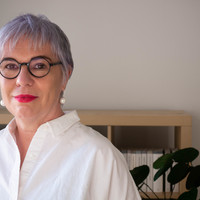
Shilpa Phadke
Related Authors
Sarah Pink
Monash University
Enrique Gracia
Universitat de València
Bob Jessop
Lancaster University
Andrea Peto
Central European University
David Seamon
Kansas State University
Deborah Tolman
Hunter College, CUNY
Armando Marques-Guedes
UNL - New University of Lisbon
Kirsty Budds
Keele University
Amy Shields Dobson
Curtin University, Perth
Phil Zelazo
University of Minnesota
InterestsView All (24)










Uploads
Papers by Shilpa Phadke
Citation:
Phadke, S. (2024). “You are Next”: Unmarried Urban Women in India and the “Marriage Talk”. In C. Brosius, J. de Kloet, L. Abu-Er-Rub, & M. Butcher (Hrsg.), Being Single in the City: Cultural Geographies of Gendered Urban Space in Asia (S. 115-147). Heidelberg University Publishing.
https://doi.org/10.17885/heiup.1425.c20537
Link to PDF: file:///Users/shilpaphadke/Downloads/heiUP-1425-978-3-96822-277-6-CH04.pdf
Abstract:
In this chapter, I focus on women’s relationships with their families in relation to what I am calling the “marriage talk,” that is, the conversation that revolves around when, whom, and even how a woman should marry. My concern in this chapter is not to contemplate the state of singleness, but rather to reflect on the ways in which women are interpellated by the institution of marriage so as to render any other choice, such as remaining unmarried, unthinkable. The paper also illuminates the gendered and casteist ideologies that underpin the institution of marriage and concomitantly, most “marriage talk” in India. This chapter centers its discussion on what it means to be a family, and engages with the changing role that daughters occupy as gendered human beings, and the shifts that occur when daughters are single. It asks how differently families might be constructed if we dislodge marriage from the central position it now occupies. In doing so, it asks what might change if women were to be recognized simply as individuals rather than as daughters, wives, and mothers.
Keywords marriage; family; caste; gender; education
Citation:
Gqola, P. D., Perera, I., Phadke, S., Shahrokni, N., Zaragocin, S., Satija, S., & Ghosh, A. (2024). Gender and public space. Gender & Development, 32(1–2), 1–25. https://doi.org/10.1080/13552074.2024.2376976
Link to PDF:
https://www.tandfonline.com/toc/cgde20/32/1-2
Ranade, Shilpa and Shilpa Phadke (2023) Putting people in place: Deconstructing gendered imaginations through mental maps. In Kamalipour, H., Aelbrecht, P., & Peimani, N. (Eds.). The Routledge Handbook of Urban Design Research Methods (1st ed.). Routledge.
ABSTRACT
This chapter reflects on the methodological interventions made in understanding the everyday production of gender-space using mapping exercises that drew on people’s mental maps and ideological perceptions of how gender is produced and performed in public space. We discuss two simple mapping exercises developed for our pedagogical initiatives. In these exercises, the participants are asked to imagine (and graphically mark on a drawing of a hypothetical public space) themselves, and other people in specific situations and in relation to activities. Based on the theoretical premise that gender-space is in a constant state of becoming, the extensive visual documentation these exercises produced have been significant in elucidating the “how?” of this proposition. For example, they demonstrated how women’s access to public space was marked and conditional upon, amongst other things, constant manufacturing of purpose and respectability. Originally designed for pedagogic workshops, the similarity of responses to the mapping exercises across different groups of participants across age, class, geographical location, and even nationality generated valuable data that corroborated our ethnographic and interview-based findings. Further, these insights also led us to an engagement with fundamental theoretical questions in the production and maintenance of a gender-space, such as those linked to agency, structure, and ideology. We conclude by examining how the learnings from such a methodology can inform the design of physical space and ways in which they can be used to explore different affordances in public space.
Citation:
Kanagasabai, N., & Phadke, S. (2023). Forging Fraught Solidarities: Friendship and Feminist Activism in South Asia. Feminist Encounters: A Journal of Critical Studies in Culture and Politics, 7(1), 02. https://doi.org/10.20897/femenc/12880
Link to PDF:
https://www.lectitopublishing.nl/download/forging-fraught-solidarities-friendship-and-feminist-activism-in-south-asia-12880.pdf
Link to open access essay: https://www.lectitopublishing.nl/download/forging-fraught-solidarities-friendship-and-feminist-activism-in-south-asia-12880.pdf
Abstract:
Friendship has been central to the forging of feminist solidarities. Cross-border friendships and feminist activism in South Asia have disrupted narratives of violence and hostility between countries. Friendship then is deeply political for multiple reasons, often facilitating a powerful critique and unsettling hegemonic, heteropatriarchal narratives of affective relationships. Drawing on the narratives of feminist activists in South Asia, we explore the nuances of ‘doing activism’ with friends as well as how friendship itself inflects activism and the interrogations that these might bring to the fore. We reflect on the ways in which feminist activism has engaged with fun arguing that joy is intrinsic to feminist organising. We also examine feminist fractures and how these might impact our activism, our friendships, and what they reveal about structural inequalities. As we reflect on the transformative potential of feminist activism within the South Asian region over the last four decades and the friendships it has nurtured, we ask if friendship has fulfilled the promise of challenging existing structural hierarchies and reimagining our relationships, concluding that the answer must be yes and no.
ISBN: 978-93-91138-46-2 (HB)
Abstract
Can fun be a serious politics in feminist struggles? That is the question that animates this paper. While claims for the economic and political participation of women have gained increasing legitimacy, the demand for fun may often be seen not just as frivolous, but also as undermining the seriousness of the feminist project itself. The paper engages with three feminist campaigns, two in India and one in Pakistan, that assert women’s rights to occupy the public for fun. The paper refutes critiques that suggest that feminist campaigns to claim public space in the city are illustrative of neo-liberal subjecthood and reflect the birth of new entrepreneurial selves. It also reflects on contemporary feminist debates in India around what counts as feminist, arguing that claims for fun might in fact be central to a feminist politics in the twenty-first century.
Shilpa Phadke (2020) Isolated Bubbles: Reflections on Performing New Motherhood on Facebook. In Anjali Monteiro, KP Jayasankar and Amit Rai (eds.) DIGINAKA: Subaltern Politics and Digital Media in Post-Capitalist India, Orient Blackswan.
Radhika Gajjala and Shilpa Phadke (2019) Dialogue Interlude: #WhyLoiter
In Gajjala, R. Digital Diasporas: Labor, Affect in Gendered Indian Digital Publics, UK: Rowman and Littlefield International. Pp. 81-89. [ISBN: 9781783481156]
Citation:
Shilpa Phadke (2017) 'Women walk out', Index on Censorship, Volume 46, Issue 4, pp. 50–53.
DOI: doi/full/10.1177/0306422017748816
Rosalind Gill, Christina Scharff, and Ana Sofia Elias, London: Palgrave Macmillan.
This chapter examines some negotiations that self-identified feminist women with daughters engage in the process of mothering. It draws on research conducted in the early 21st century among educated, upper middle class, urban women and asks what it means to be a feminist mother in post-globalisation India. The chapter is based on narratives that engage both feminism and the act of mothering in relation to concerns about body hair, size and colour. I attempt to think through the inevitable contradictions that arise when a feminist politics encounters the fashion-beauty complex in the context of mothering.
Phadke, Shilpa (2016) ‘The Unruly Margins: Reflections on Violence in Public in Mumbai’, in Kalpana Kannabiran (ed), Violence Studies, New Delhi: Oxford University Press, 2016, p239-251.
with urban, middle-class narratives on feminism by
young women. For them, their feminism is often
precarious because it places possible heterosexual
romance at risk by marking them as apparently
anti-men. Further, it tends to place them in antagonistic
relationships with their families, compelling them to
engage in various strategies of negotiation, subversion
and rebellion. This paper examines their understanding
of both possible heterosexual relationships and the
complex negotiations with families. Reflecting on these
narratives, it argues that young women feminists today
are taking risks, asking difficult questions, critically
evaluating their own location and subject positions in
their engagement with a feminist politics and practice.
Citation:
Phadke, S. (2024). “You are Next”: Unmarried Urban Women in India and the “Marriage Talk”. In C. Brosius, J. de Kloet, L. Abu-Er-Rub, & M. Butcher (Hrsg.), Being Single in the City: Cultural Geographies of Gendered Urban Space in Asia (S. 115-147). Heidelberg University Publishing.
https://doi.org/10.17885/heiup.1425.c20537
Link to PDF: file:///Users/shilpaphadke/Downloads/heiUP-1425-978-3-96822-277-6-CH04.pdf
Abstract:
In this chapter, I focus on women’s relationships with their families in relation to what I am calling the “marriage talk,” that is, the conversation that revolves around when, whom, and even how a woman should marry. My concern in this chapter is not to contemplate the state of singleness, but rather to reflect on the ways in which women are interpellated by the institution of marriage so as to render any other choice, such as remaining unmarried, unthinkable. The paper also illuminates the gendered and casteist ideologies that underpin the institution of marriage and concomitantly, most “marriage talk” in India. This chapter centers its discussion on what it means to be a family, and engages with the changing role that daughters occupy as gendered human beings, and the shifts that occur when daughters are single. It asks how differently families might be constructed if we dislodge marriage from the central position it now occupies. In doing so, it asks what might change if women were to be recognized simply as individuals rather than as daughters, wives, and mothers.
Keywords marriage; family; caste; gender; education
Citation:
Gqola, P. D., Perera, I., Phadke, S., Shahrokni, N., Zaragocin, S., Satija, S., & Ghosh, A. (2024). Gender and public space. Gender & Development, 32(1–2), 1–25. https://doi.org/10.1080/13552074.2024.2376976
Link to PDF:
https://www.tandfonline.com/toc/cgde20/32/1-2
Ranade, Shilpa and Shilpa Phadke (2023) Putting people in place: Deconstructing gendered imaginations through mental maps. In Kamalipour, H., Aelbrecht, P., & Peimani, N. (Eds.). The Routledge Handbook of Urban Design Research Methods (1st ed.). Routledge.
ABSTRACT
This chapter reflects on the methodological interventions made in understanding the everyday production of gender-space using mapping exercises that drew on people’s mental maps and ideological perceptions of how gender is produced and performed in public space. We discuss two simple mapping exercises developed for our pedagogical initiatives. In these exercises, the participants are asked to imagine (and graphically mark on a drawing of a hypothetical public space) themselves, and other people in specific situations and in relation to activities. Based on the theoretical premise that gender-space is in a constant state of becoming, the extensive visual documentation these exercises produced have been significant in elucidating the “how?” of this proposition. For example, they demonstrated how women’s access to public space was marked and conditional upon, amongst other things, constant manufacturing of purpose and respectability. Originally designed for pedagogic workshops, the similarity of responses to the mapping exercises across different groups of participants across age, class, geographical location, and even nationality generated valuable data that corroborated our ethnographic and interview-based findings. Further, these insights also led us to an engagement with fundamental theoretical questions in the production and maintenance of a gender-space, such as those linked to agency, structure, and ideology. We conclude by examining how the learnings from such a methodology can inform the design of physical space and ways in which they can be used to explore different affordances in public space.
Citation:
Kanagasabai, N., & Phadke, S. (2023). Forging Fraught Solidarities: Friendship and Feminist Activism in South Asia. Feminist Encounters: A Journal of Critical Studies in Culture and Politics, 7(1), 02. https://doi.org/10.20897/femenc/12880
Link to PDF:
https://www.lectitopublishing.nl/download/forging-fraught-solidarities-friendship-and-feminist-activism-in-south-asia-12880.pdf
Link to open access essay: https://www.lectitopublishing.nl/download/forging-fraught-solidarities-friendship-and-feminist-activism-in-south-asia-12880.pdf
Abstract:
Friendship has been central to the forging of feminist solidarities. Cross-border friendships and feminist activism in South Asia have disrupted narratives of violence and hostility between countries. Friendship then is deeply political for multiple reasons, often facilitating a powerful critique and unsettling hegemonic, heteropatriarchal narratives of affective relationships. Drawing on the narratives of feminist activists in South Asia, we explore the nuances of ‘doing activism’ with friends as well as how friendship itself inflects activism and the interrogations that these might bring to the fore. We reflect on the ways in which feminist activism has engaged with fun arguing that joy is intrinsic to feminist organising. We also examine feminist fractures and how these might impact our activism, our friendships, and what they reveal about structural inequalities. As we reflect on the transformative potential of feminist activism within the South Asian region over the last four decades and the friendships it has nurtured, we ask if friendship has fulfilled the promise of challenging existing structural hierarchies and reimagining our relationships, concluding that the answer must be yes and no.
ISBN: 978-93-91138-46-2 (HB)
Abstract
Can fun be a serious politics in feminist struggles? That is the question that animates this paper. While claims for the economic and political participation of women have gained increasing legitimacy, the demand for fun may often be seen not just as frivolous, but also as undermining the seriousness of the feminist project itself. The paper engages with three feminist campaigns, two in India and one in Pakistan, that assert women’s rights to occupy the public for fun. The paper refutes critiques that suggest that feminist campaigns to claim public space in the city are illustrative of neo-liberal subjecthood and reflect the birth of new entrepreneurial selves. It also reflects on contemporary feminist debates in India around what counts as feminist, arguing that claims for fun might in fact be central to a feminist politics in the twenty-first century.
Shilpa Phadke (2020) Isolated Bubbles: Reflections on Performing New Motherhood on Facebook. In Anjali Monteiro, KP Jayasankar and Amit Rai (eds.) DIGINAKA: Subaltern Politics and Digital Media in Post-Capitalist India, Orient Blackswan.
Radhika Gajjala and Shilpa Phadke (2019) Dialogue Interlude: #WhyLoiter
In Gajjala, R. Digital Diasporas: Labor, Affect in Gendered Indian Digital Publics, UK: Rowman and Littlefield International. Pp. 81-89. [ISBN: 9781783481156]
Citation:
Shilpa Phadke (2017) 'Women walk out', Index on Censorship, Volume 46, Issue 4, pp. 50–53.
DOI: doi/full/10.1177/0306422017748816
Rosalind Gill, Christina Scharff, and Ana Sofia Elias, London: Palgrave Macmillan.
This chapter examines some negotiations that self-identified feminist women with daughters engage in the process of mothering. It draws on research conducted in the early 21st century among educated, upper middle class, urban women and asks what it means to be a feminist mother in post-globalisation India. The chapter is based on narratives that engage both feminism and the act of mothering in relation to concerns about body hair, size and colour. I attempt to think through the inevitable contradictions that arise when a feminist politics encounters the fashion-beauty complex in the context of mothering.
Phadke, Shilpa (2016) ‘The Unruly Margins: Reflections on Violence in Public in Mumbai’, in Kalpana Kannabiran (ed), Violence Studies, New Delhi: Oxford University Press, 2016, p239-251.
with urban, middle-class narratives on feminism by
young women. For them, their feminism is often
precarious because it places possible heterosexual
romance at risk by marking them as apparently
anti-men. Further, it tends to place them in antagonistic
relationships with their families, compelling them to
engage in various strategies of negotiation, subversion
and rebellion. This paper examines their understanding
of both possible heterosexual relationships and the
complex negotiations with families. Reflecting on these
narratives, it argues that young women feminists today
are taking risks, asking difficult questions, critically
evaluating their own location and subject positions in
their engagement with a feminist politics and practice.
Phadke, Shilpa (2019) 'Mere populism? Kejriwal plan to make transport free for Delhi women could actually transform city', Scroll.in, 07 July 2019. https://scroll.in/article/926148/mere-populism-kejriwal-plan-to-make-transport-free-for-delhi-women-could-actually-transform-city
Phadke, Shilpa (2018) '‘A service, not an enterprise’: Privatising Mumbai’s BEST buses means unraveling a system that works', Scroll.in, https://scroll.in/article/889584/a-service-not-an-enterprise-privatising-mumbais-best-buses-means-unraveling-a-system-that-works
Shilpa Phadke, 'What Kirron Kher could learn from women who actually use public transport', Scroll, 02 December 2017. Link: https://scroll.in/article/859979/what-kirron-kher-could-learn-from-women-who-actually-use-public-transport
Link: https://thewire.in/195963/can-learn-young-woman-rocked-madhya-pradesh-police/
Link: https://scroll.in/article/854448/metoo-there-is-power-in-speaking-and-being-heard-and-every-enraged-voice-counts
The hashtag protest against sexual harassment confronts a problem that is global in scale, and mounts a powerful digital feminist challenge.
Live Mint
Thu, Jan 19 2017.
http://www.livemint.com/Opinion/8bZu3L4PiQKNFfonpxKEfN/Women-too-have-the-right-to-fun.html
When women choose to loiter, we are refusing to be put into the little boxes that society would like us to be in
Mint, 04 February 2017.
http://www.livemint.com/Politics/F1X2jekyLSMHLAwbgf9FLL/Freedom-without-binaries-without-borders.html
Phadke, Shilpa, ‘The condom-counting MLA has earned a laugh, but his antics betray a deeply entrenched sexism’, Scroll.in, 26 February 2016.
Click link to go to article.
Click link at top left of page for article available online.
December 22, 2015
Opinion piece in Al Jazeera on the Pinjra Tod Movement.
Citation: Phadke, Shilpa Are Indian Women's Dorms Turning Into Prisons? Faced with strict curfews, women say they feel like inmates, not students, Al Jazeera,
December 22, 2015.
Phadke, Shilpa, 'Risking Politics, Practising Art: The Precarity of Feminism', in ART India: The Art News Magazine of India, January 2016, Volume XX, Issue I
Exhibition co-curated with Bishakha Datta
Phadke, Shilpa, ‘These Mumbai Streets…’ in Mumbai Reader 08, Mumbai: UDRI, 2009, p.282-287. (reprinted).
Published in Urban Design and Research Institute (eds) Mumbai Reader Mumbai: UDRI. 246-249.
Phadke, Shilpa. • ‘Dancing around each other: Conversations with a Tween’, InPlainspeak, 15 March 2022
Phadke, Shilpa (2015) • Talking About Gender and Sexuality as a Feminist Mother: It Only Gets More Complicated, in In Plainspeak, 15 November.
Click on link to access article:
15
15
womeninlabourpodcast@gmail.com|3/17/2020
Ever noticed how our public spaces and workplaces are full of men? Dr. Shilpa Phadke encourages women to take back the city with something revolutionary: loitering. In this episode, we ask how public spaces play a role in women's commutes, why women have to justify their presence in public spaces, and why loitering could be the revolution we need.
With special guest Dr. Shilpa Phadke:
Dr. Shilpa Phadke is a sociologist and associate professor at the Centre for Media and Cultural Studies at Tata Institute of Social Sciences, Mumbai. She is also a co-author of ‘Why Loiter? Women and Risk on Mumbai Streets,’ an absolutely seminal text about how women access public space in cities.
http://www.tarshi.net/inplainspeak/interview-shilpa-phadke/
9 Mar 2017 In the year 2016, P.V. Sindhu smashed her way to a silver medal at the Rio Olympics. Sakshi Malik’s bronze was won through hard fought battles on the wrestling mat, while Dipa Karmakar’s Produnova vault at the same games had the whole world cheering for her. Sport is a test of human endurance, of pushing our physical and mental selves to the limit. In India, from the Olympics to Dangal in 2017, sport is also a powerful tool to bring about change in gender attitudes.
This panel took place after the world premiere of Field of Dreams a touching documentary by Minnie Vaid which follows a school principal and a soccer coach who are using football to change the lives of young girls in Jalna district, Maharashtra. This was followed by the screening of Under the Open Sky, a documentary by Shilpa Phadke, Nikhil Titus and Faiz Ullah, about a girls' football initiative that begins to claim open public spaces to play in Mumbai’s Mumbra suburb.
Minnie, Faiz and Shilpa were joined on the panel by Havovi Wadia of Magic Bus Foundation which was moderated by Parmesh Shahani.
Seminar on Gender and Identities in Contemporary India
30 Oct 2019 Panel Discussion by Dr Shilpa Phadke, Dr Jagriti Gangopadhyay and Dr Ketaki Chowkhani on fun in public spaces, commuter marriages and singlehood. Gangubai Hangal Auditorium, MCH, Planetarium Complex, Manipal, October 10, 2019.
Freedom from Protection
7 Mar 2021 Women & the Right to Risk in the City
Author: Shilpa Phadke
Editor: Sagarika Unnikrishnan
April 8, 2021
Interviews, Videos